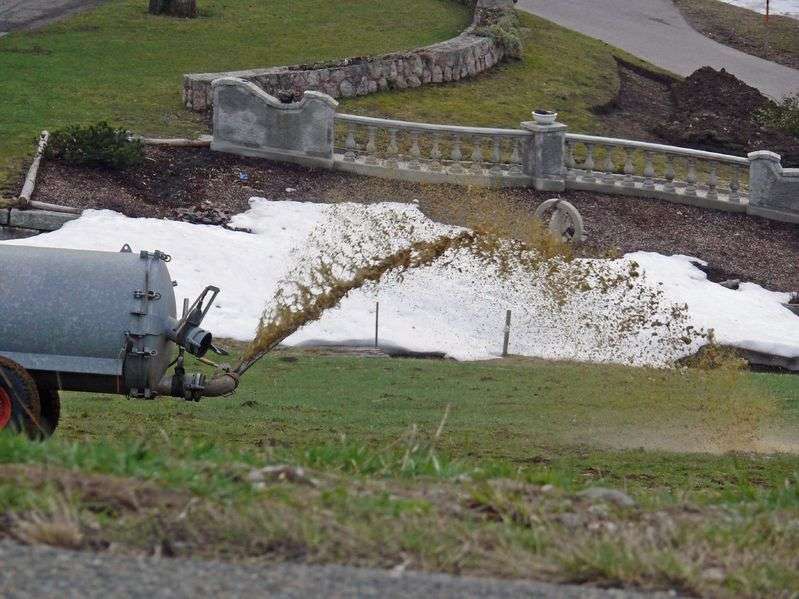
A farm is trialling technology that removes water from slurry and treats it with an aim to be acceptable for reuse or safe discharge.
The technique, developed by Swansea-based Power & Water not only aims to reduce the risk of farms polluting watercourses but to make slurry easier to store and spread.
Initial data from the on-farm system that has the potential to reduce slurry volume by up to 80%.
That technology will be up and running this month and farmers will get an opportunity to see it in action at an open day on Gelli Aur College farm in Carmarthenshire, on August 31st.
With the slurry produced by the herd at Gelli Aur stored in three tanks with a capacity of approximately 1 million gallons, farm manager John Owen says the potential is enormous.
"Because it separates the water from the slurry only the important nutrients and solids will be stored for use on farm," Mr Owen said.
"With the system in place, we aim to enable safe discharge into watercourses and/or the ability to be reused on the farm.
"It will go a long way towards alleviating contamination of watercourses and other issues around pollution."
'Slurry dewatering'
Slurry storage is an issue on dairy farms, whatever the system. "We run an extensive grass-based system but have a considerable amount of slurry to control during certain months," Mr Owen said.
Last year the Welsh government said it would strike a balance between “regulatory measures, voluntary initiatives and investment” in its approach to slurry and fertiliser application.
Mr Owen said slurry dewatering could provide one solution. "The industry is trying to come up with solutions for the issue and if we can prove this equipment is effective we hope that the government will support the farming industry to invest in this equipment," he added.
"It won’t be for everyone but we hope that the concept can be modified to suit all systems and herd sizes."
'Head-on approach'
Zoe Matthews of Power & Water says the ultimate outcome of this project is the ability to tackle agricultural pollution with a ‘head-on’ approach.
"The aim of the project for us is to make better solutions available to farmers, to manage their farm slurry using best practice in storage, water purification, nutrient and resource recovery," Ms Matthews explained.
"The strength of such collaborations is so important, to provide solutions to Wales' water quality issues, and the means for Wales to obtain 'Good' Water Quality Status under the Water Framework Directive (WFD) on every occasion."
Funding for the project has been provided by the Welsh Government’s Rural Communities Rural Development Programme 2014-2020.
